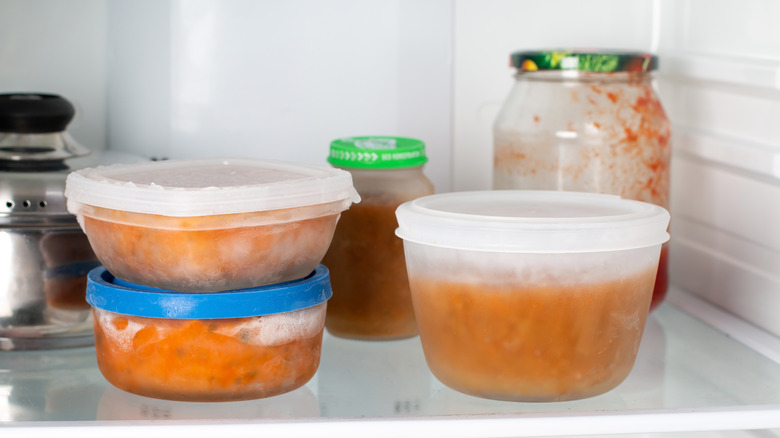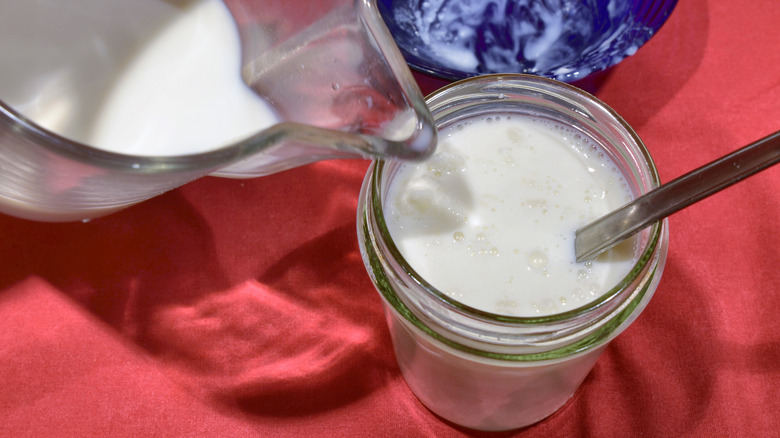The Reason You Shouldn't Freeze Your Food In Glass Jars
Plastic tupperware may have a reputation for being the worst type of container to store your food in, but as it turns out, glass jars are just as bad. Unlike plastic, glass doesn't seep harmful chemicals into your food, however, the material does present a different sort of problem. According to Don't Waste the Crumbs, non-tempered glass, the kind that glass mason jars are made of, contains microscopic bubbles of air that expand and contract as the glass is exposed to different temperatures, such as during canning and freezing.
As Don't Waste the Crumbs explains, glass is prone to shattering in the freezer as it is. But the possibility of breakage is even higher depending on the contents of the jar, The Kitchn says. The reason is that food and liquid naturally expand when frozen. Therefore, if a jar is filled to the rim then placed in the freezer, the contents will have nowhere else to go, causing the glass to shatter.
Is there a way to freeze food in glass jars?
Glass jars are finicky when it comes freezing, but that doesn't mean they're impossible to use. Treading My Own Path shares that it all starts with the right jar. The type least likely to break in the freezer is one with a wider neck that has been commercially heat-treated, meaning it previously contained preserved food such as jam or tomato sauce. These jars are typically more durable, and can better withstand extreme temperatures.
Treading My Own Path advises against using jars that are thin, or ones with an extra piece of glass fused to the bottom, as these are more prone to shattering. When filling with food, there must be enough extra space at the top to accommodate for any expansion, and for best results, the lid should be left off until the food inside is fully frozen. Provided that you take proper precaution, your glass jar will do just fine in the freezer. Otherwise, it's safest to stick to freezer bags and Tupperware.

